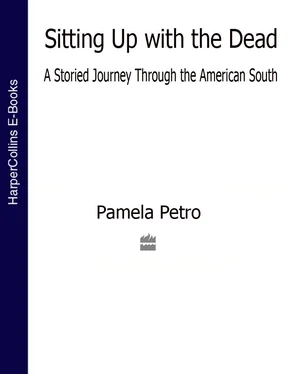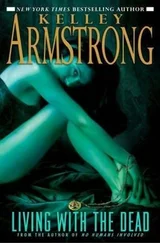Tony Horowitz wrote in Confederates in the Attic that, ‘The South is a place. East, West, and North are nothing but directions.’ When I read that my kneejerk reaction was to agree; I couldn’t explain why, but I wanted to find out. In my previous book, a journey round the world in search of Welsh expatriates – a group for the most part anchored by a concrete sense of identity – I had written of myself, by way of contrast, ‘To be an American, I sometimes feel, is to be blank, without a nationality or language.’ It was easy for me to write that sentence. I grew up in the suburban New York area, the heartland of the American communications industry that daily beams a facsimile of itself to the world. To be Northern, for me, is simply to be American. But Southerners – at least those in print – seemed to feel very differently, branded on the soul by the geography of their birth. Why? What place-bond did they have that I didn’t? In North Toward Home , Willie Morris, a Southerner from Mississippi, wrote of himself, ‘The child … was born into certain traditions. The South was one, the old, impoverished, whipped-down South; the Lord Almighty was another; … the Negro doctor coming around back was another; the printed word; the spoken word; and all these more or less involved with doom and lost causes, and close to the Lord’s earth.’ I had no such waymarks, and however fraught the Southern identity might be, I yearned for such a bond.
Growing up in the Sixties I had learned that the South was a scary place. Whenever I tried to conjure images of the things I knew to be there – tobacco fields, sharecroppers’ shacks, flat-roofed stores on Main Streets and old-fashioned buses – I saw them in my mind’s eye through an eerie blue light. These Gothic stage sets of mine had origin in a mundane reality: the fact that most of my childhood impressions were thrown into our safe, Northern living room by my parents’ black and white television set. Unfortunately, they were usually disturbing: blurred scenes of race riots and fierce men with firehoses, dogs attacking crowds of protesters and marchers in pointy hats and white sheets. It didn’t help that the picture used to roll a lot (usually set right by a whack on the side), making the images even stranger. The South looked like the site of a haunting: a dream world, not a waking one.
I was a dramatic child, given to extravagant musings – usually involving hauntings closer to home, principally in my closet – and eventually outgrew most of my darker impressions. But scratch the surface of nearly all Yankees and there remains a prejudice against the South – an unvoiced, but understood, moral superiority. We won the Civil War because we were right. ‘Be careful down there.’ I heard that advice from more than a few Boston friends. ‘Will you be safe alone?’ ‘You know, it’s still pretty rural down there. All kinds of things go on.’
Down There. The South has always been somewhere below my home. I have a strange semantic prejudice, probably endemic to the Northern Hemisphere, that North is ‘up’ and South is ‘down’. So to go down there was to descend geographically. And in many ways, I discovered that it was also to descend metaphorically, Orpheus-style, not so much into the Underworld as a kind of national Otherworld, an ornery, land-wedded, once-and-future counterbalance to the here-and-now America of my experience, the latter made generic through self-promotion. In much of the world’s oral literature – the old stories explaining the external world that lived through a spoken chain of memory – travelers went to the Otherworld because theirs was missing something, usually some critical means of reproducing itself (hence the ceaseless abduction of magic women in Celtic lore). They were thieves, to put it bluntly, but their plunder usually saved the day.
In my case, I was missing two things: a sense of my country as a place , not simply a well-oiled machine ceaselessly turning out the future, and, on a personal level, a voice. I am a relentless daydreamer. I tell myself tales so intricate and involved that they blot out whole days of my life. Like storytelling, like travel, like madness and violence, daydreams lead out of the known world into exceptional places – some of which no one in his or her right mind wants to visit, others wondrous and wise. But unlike those other means of transportation, daydreaming is a solitary sport in which stories are hoarded rather than shared. The French philosopher Gaston Bachelard asked, ‘What is the source of our first suffering?’ only to answer himself : ‘It lies in the fact that we hesitated to speak. It was born in the moment when we accumulated silent things within us.’
Who better than tellers – people whose role it is to share stories – to help me make a personal voyage from silence to speech (or in my case to writing, which is little more than speech’s shadow), and thereby ditch my accumulation of fictional silence? So I went down into the Otherworld of the American South and I came back with stories. With living, listened-to tales that would be my exemplars, and that also might help me understand the open-ended, unfinished place that Civil War historian Shelby Foote says gives us ‘a sense of tragedy which the rest of the nation lacks’ – not to mention why my sense of America is incomplete without it.
I should note that I opted to plunder spoken stories, as opposed to written ones, because they are chosen for their listeners, not by them, as is the case with readers. It was better, I thought, to have my assumptions made for me by Southern storytellers than to make my own, loaded as my selections would be with outsider’s baggage. I asked each teller for a story or a tale that revealed something of the nature of life in his or her corner of the American South. (These semantics mattered, as the word ‘story’ often invokes the private realm and ‘tale’ the public; this option left tellers free to choose the space in which they felt the most comfortable, or thought was the best cipher of the South). The orality of the stories was important as well. Oral tales are a plural endeavor; they’re the products of generations and geography and weather and all the other ligaments that bind a community together. Written stories, by contrast, are idiosyncratic and individual, and it was a public sense of the South I sought, not a private one. Besides, two covers, a spine, and a few hundred pages don’t have nearly as much personality as living, cussing, dancing, spitting, smoking, eating, drinking humans. Storytellers are often their own stories. They certainly became mine.
First Journey
R.S. THOMAS, ‘Eheu Fugaces’
Between
One story and another
What difference but in the telling
Of it?
Akbar’s Tale
I WAS WEDGED INTO THE AISLE OF THE PLANE, waiting impatiently to exit, when a fellow passenger whispered uncomfortably close to my ear, ‘They say that when you die, you have to change planes in Atlanta to get to heaven.’
Atlanta’s Hartsfield International Airport is the second-busiest in the United States. Although it looks like every other airport in the world, the talk there is exceptional. As soon as I arrived in the main terminal, a short, squarish security woman called me ‘baby’, which I found unaccountably comforting (as in ‘You lost, baby’, after I’d attempted to retrieve my luggage from the wrong baggage carousel; my suitcase was doing figure-of-eights on another conveyor belt on the far side of the airport). A few minutes later a very tall African-American man questioned me about cigarettes in Japanese. When I looked confused he switched with great courtesy to chewy-vowelled, Georgia English.
Читать дальше












